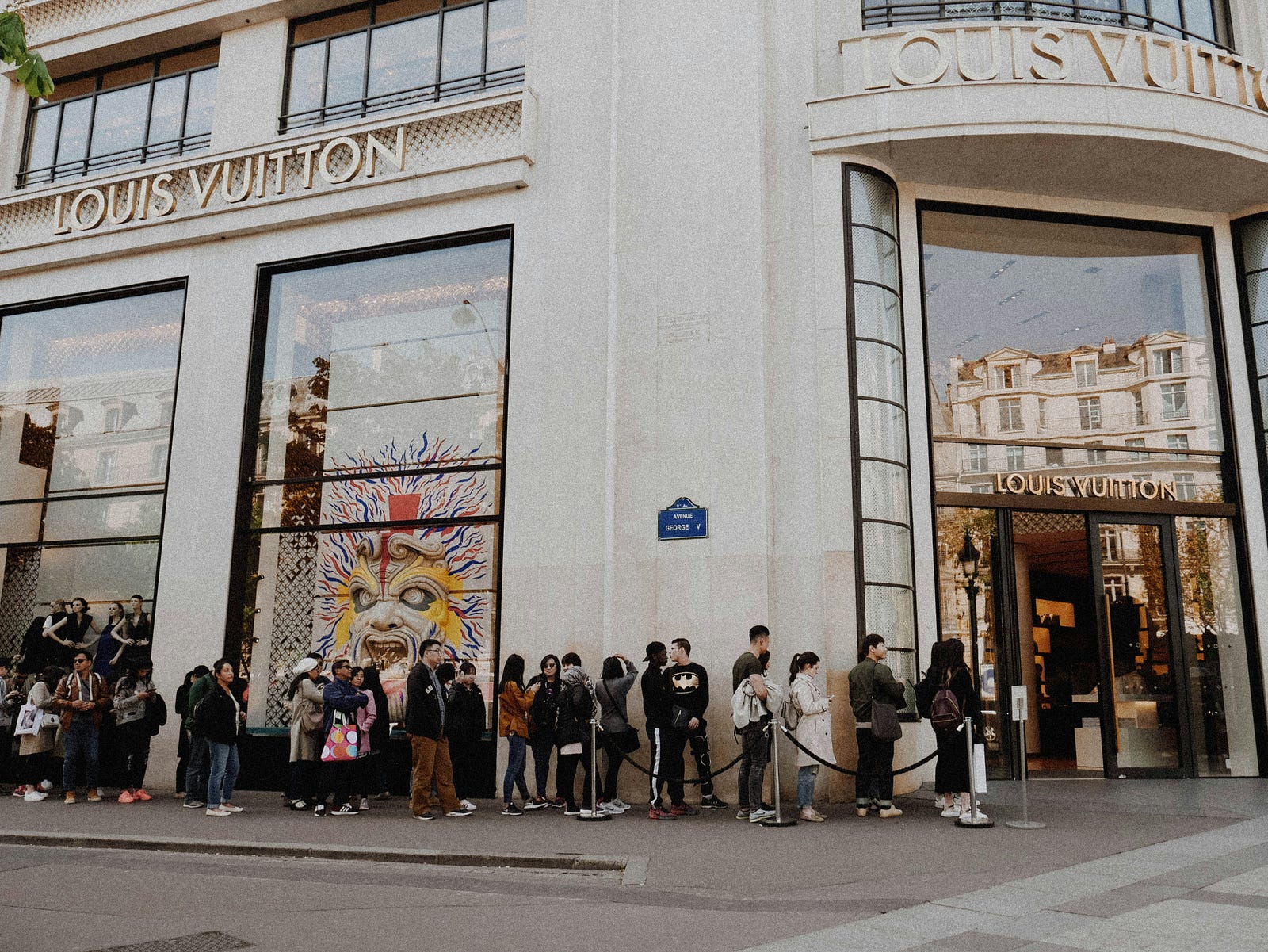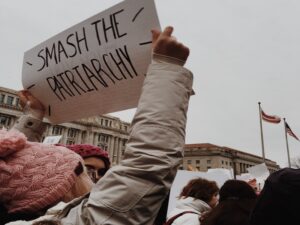Reaching destination sustainability requires radical change
In 2020 global wealth reached a staggering $514 trillion. With 60 per cent of that wealth in the top ten richest nations, you would imagine every citizen in those countries would live in comfort. It’s odd then that 45 million Americans live below the poverty line. 13.4 per cent of households in the UK (3.8 million) can’t afford to keep their homes warm in winter. 1.5 million Germans depend on food banks. Poverty in the world’s richest nations is not due to a lack of wealth, but rather how that wealth is distributed.
America illustrates how inequality has become worse over time. In Winner-Take-All Politics, Jacob Hacker and Paul Pierson argue that between 2001 and 2006, the share of income gains going to the top one per cent was over 53 per cent. That means that for every dollar of additional income Americans pocketed, over 53 cents went to the wealthiest one in 100 households.
After the 2008 financial crisis, the wealthiest one per cent in America captured 95 per cent of post-financial crisis growth. This didn’t happen by chance. Nor did the bottom 90 per cent become poorer through bad luck.
Increasing inequality is an outcome of the rules of the economic game being skewed to ensure the richest always win. This dark side of capitalism is brilliantly surmised by Joseph Stiglitz in The Price of Inequality, where he says;
“While we typically think of the rule of law as being designed to protect the weak against the strong, and ordinary citizens against the privileged, those with wealth will use their political power to shape the rule of law to provide a framework within which they can exploit others. They will use their political power, too, to ensure the preservation of inequalities rather than the attainment of a more egalitarian and more just economy and society. If certain groups control the political process, they will use it to design an economic system that favours them: through laws and regulations that apply specifically to an industry, through those that govern bankruptcy, competition, intellectual property or taxation, or, indirectly, through costs of accessing the court system.”
Tax havens are a blatant example of how the richest set the rules of the economic game. The IMF estimates up to $36 trillion is held offshore by rich individuals. That’s seven per cent of all human wealth. Tax losses from global individual income are estimated at around $200 billion a year. Corporations are also in on the act. American Fortune 500 companies held an estimated $2.6 trillion offshore in 2017. Collectively, tax havens cost governments between $500 billion and $600 billion a year in lost corporate tax revenue.

Market fundamentalists argue low taxes for the rich benefit everyone as it encourages economic growth. For that argument to hold any weight, wealth needs to be reinvested back into the economy, not syphoned off into a secret financial underworld.
The argument justifying low taxes on the rich has always been a convenient myth. Funnily enough, the effect of taxing the rich less is that the rich get…richer. Rather than a trickle-down effect, the impact of lower taxes on the rich (and outright tax avoidance) is that inequality increases without having any significant impact on jobs or growth.
Globalisation
The story is much the same when it comes to developing nations. Globalisation was sold as a quick ticket to prosperity. Developing nations opened their borders to corporations, welcoming them with open arms. But corporations don’t exist to benefit society. They have been more than happy to set up operations in developing countries, but their influence has often come at the cost of the citizens of those countries.
Take Nigeria, which is the largest oil exporter in Africa. In 2021 the oil and gas sector made up 10 per cent of Nigeria’s GDP and represented 86 percent of the country’s export earnings. You would imagine that wealth would translate into higher incomes for all. Think again.
Half of Nigeria’s population — of nearly 220 million people — live on less than $1.90 a day. On top of this, the Niger Delta has suffered catastrophic environmental damage because the oil industry sees no need to reduce, limit or clean up the environmental impacts of their activities.
International oil companies like Shell, who produce 39 per cent of the nation’s oil, dominate the sector. They have generated billions in profits for themselves and a handful of Nigerians who have become billionaires in Nigeria’s kleptocracy.
So, the oil companies extract the wealth that could be used to stimulate the economy and uplift millions of Nigerians from poverty. They rub salt in the wounds by destroying the environment, helping to exacerbate Nigeria’s poverty. Rather than make them better off, oil production has made the lives of Nigerians harder.
The result of this wealth grab is that while we produce enough food to feed ten billion people, 850 million people don’t have enough to eat. Oxfam estimates that 11 people die from hunger every minute. 770 million people still don’t have access to electricity. One in three people don’t have access to clean water.
Redistribution
You may be thinking, what on Earth do inequality and poverty have to do with sustainability? After all, the yearly COP meetings, the IPCC reports, and government and business actions, all focus on the climate crisis being a problem that must be overcome. Nothing to do with a social crisis.
But it would be a morally abhorrent state of affairs for rich nations to focus solely on the environment, in other words, the part of the crisis impacting them, while ignoring the plight of billions of people living below the poverty line. That’s where sustainable development comes in.
The goal of sustainable development is to end poverty and meet each person’s needs within environmental limits. Once each person is empowered to live a fulfilling, prosperous life without negatively influencing the environment, we will have achieved sustainability.
Sustainability is a social and economic destination, sustainable development is the steps being taken to reach that destination.
What does sustainable development look like at present? Solutions to end poverty revolve around more economic growth through a more connected world economy. An issue with economic growth generally is that it’s an unsustainable goal for two reasons.
First, the laws governing the natural world mean that never-ending growth on a finite planet is a scientific impossibility. We’re eventually going to hit limits to growth. Second is the small matter of ecological overshoot. The global economy is now so big that we would need 1.7 Earths to make our consumption levels sustainable. And it’s not as if these demands meet the needs of each person. There are billions of people who exist outside of consumer society.
The other issue with economic growth is that without adequate regulation of markets, economic growth will continue leading to the same outcomes. The rich will get even richer, and the poor will remain poor. So if the goal is to end poverty then it’s pointless seeking to create a larger economic pie.
Rather than the need to build a larger economic pie, what’s required is more effective mechanisms to share what is already here. Wealth redistribution would be an ideal policy when it comes to sustainable development. Ideas that would help to achieve such an outcome include;
- Making tax havens illegal.
- Implementing a wealth cap — only 28,420 people have over $100 million, which equates to 0.0004% of the population. So it seems reasonable to say any wealth over this amount is taxed at 100%.
- Implementing a global corporate tax — taxing corporations at a flat rate on global revenue, rather than at a national level, would ensure they don’t get away with paying zero taxes.
- Introducing a minimum wage.
Such policies would create a framework which seeks the attainment of a more egalitarian society and economy while, at face value, having no greater impact on the environment. Perfect when it comes to sustainable development.
Implementing policies that seek to redistribute wealth is ultimately what the role of government should be. But as Stiglitz points out, the rules we all play by are carved out by the richest to ensure they always win. Inevitably any policy revolving around wealth redistribution would be highly controversial. For the rich, anyway.
They would use their power to implement a smear campaign. That smear campaign would undoubtedly revolve around an evil socialist/communist/fascist (take your pick) government that is seeking to do away with our freedoms.

Another issue with redistribution is that while it would help in alleviating poverty, it would exacerbate another problem. Living a materialistic lifestyle has become a global aspirational goal. So if more people have more disposable income it will lead to increasing consumption, which will enhance environmental impacts.
From the perspective of social development, more people with more disposable income is a good thing. But from the perspective of the environment, more people joining the consumer class means we exacerbate ecological overshoot. Social development, as we conceive of it, is incompatible with creating a sustainable society because development is the very thing that leads to unsustainable outcomes.
What’s needed is redistribution coupled with a social system that doesn’t measure success based on how much money and stuff we have compared to everyone else. Seeing as these notions of social success have become ingrained that is no easy feat. Ultimately there is no getting around the fact that capitalism is an economic system that is unfit for purpose when it comes to reaching destination sustainability. And neither are our social goals.
What’s required is a paradigm shift. A social and economic transformation where the rules of the economic and social game change. Inequality may be morally abominable, but it’s the whole system that is the problem, not one element of that system. Without changing everything, destination sustainability will always remain just that, a destination that can never be reached.



